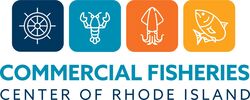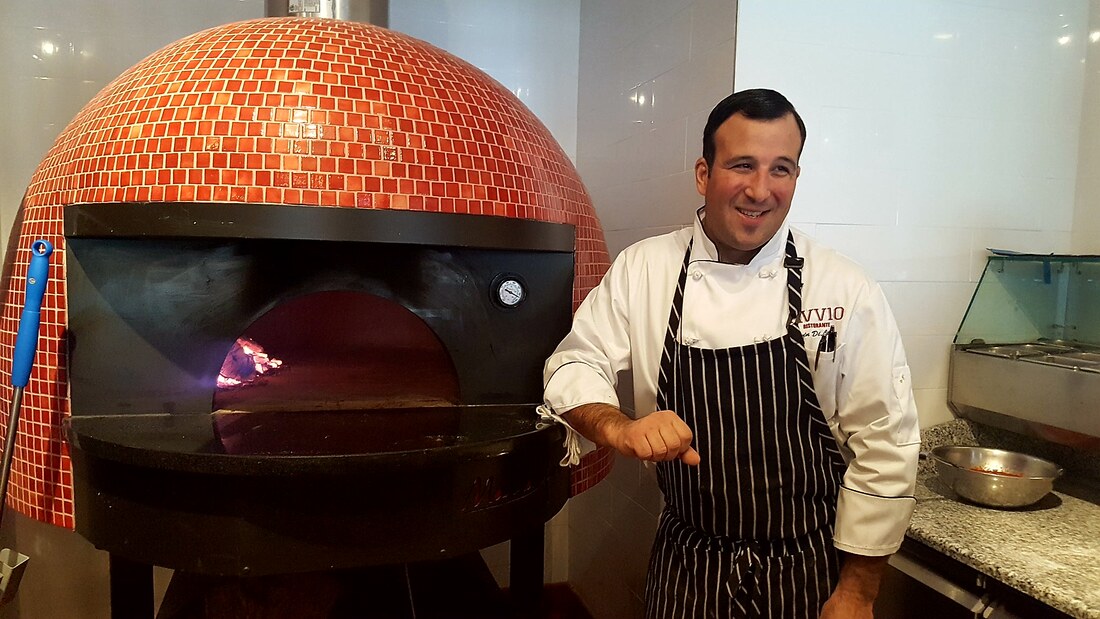|
By Sarah Schumann Chef Kevin DiLibero is the Director of Culinary Arts at the Newport Restaurant Group, an employee-owned company with twelve restaurants around Rhode Island and nearby Massachusetts. Many of the company’s restaurants pride themselves on good seafood, but two—Hemenway’s in Providence and The Mooring in Newport—stand out among the best-known seafood restaurants in the state.
For DiLibero and his restaurant chefs, including Max Peterson at Hemenway’s and Jennifer Backman at The Mooring, the Covid-19 pandemic has brought with it a keen awareness of how the factors that impact restaurants can also impact local farmers and fishermen upstream. At no time was this starker than on March 15, when the company made the difficult decision to close all of its restaurants for a time, in order to keep its employees safe. “With the closure of all our restaurants back in March, there was an understanding that the ripple effect was very large,” DiLibero reflects. “The fishermen still had to fish, but there was nowhere to sell their fish, in the sense of really moving pounds, because all the restaurants had closed. We were going into spring, graduation, Mother’s Day. There were a lot of lost sales on both ends.” As the company’s restaurants gradually reopened—first for take-out only, eventually for in-house service at half-capacity by the end of June—they had to reinvent many aspects of how they did business. Each phase presented its own set of operational challenges and its own implications for the quantity and variety of local seafood the restaurants were able to offer. For instance, DiLibero explains, putting seafood in take-out packages is logistically challenging because many types of cooked seafood don’t travel well. Additionally, customers ordering their take-out online do not benefit from guest-server interaction that takes place through in-person dining. As a result, they are more likely to gravitate towards items they have tried before and know they will like. “There’s really not a lot of human interaction in a sense,” says DiLibero of take-out ordering. “It’s tough to really truly educate someone through takeout.” Even when the group’s restaurants reopened for in-house dining, operating at half capacity meant making some tough decisions about which seafood to offer and which seafood to cut. Before the pandemic, “All of our properties had very large menus. Some of them had fifty-six items,” DiLibero explains. “Now they only have thirty-five. Now our menus don’t offer as many varieties. We just can’t carry that kind of inventory because we don’t have the foot traffic coming through the door. Hemenway’s and The Mooring would have twelve to fifteen different species of fish on their menu. That’s not the case right now.” Relying on analytics such as “menu mix” – a tool that allows food service businesses to calculate the relative percentage of sales that each menu item contributes to the business’ overall profitability—DiLibero and his restaurant chefs opted to go back to basics. For seafood, this meant keeping salmon, swordfish, tuna, littlenecks, scallops, oysters, and lobsters on the menu, while downscaling the variety of local seafood. “When a chef and a kitchen have conviction, they’ll be able to move skate, scup, bluefish, tautog, striped bass,” DiLibero says, noting that Chefs Backman and Peterson made efforts to keep these species in their offerings this summer. However, a pandemic may not be not the best time for restaurants to introduce diners to underappreciated or unfamiliar local species. “We’re not able to keep specialty products on our menus that we don’t know are going to sell.” Nonetheless, the Newport Restaurant Group never wavered in its commitment to purchasing from local farmers and fishermen, DiLibero says. For instance, the group’s restaurants continued to offer fisherman Chris Roebuck’s “Wild Atlantic” sea scallops throughout the season. “That was a decision to keep those scallops on the menu. When you have a connection with an individual, you want to make sure that you protect that relationship. That was important to me, to make sure that those scallops stayed on our menus. These are the things that tie us to these local purveyors that will never leave us. Short term or long term, that’s our focus.” In the short term, DiLibero is feeling enthusiastic about the start of the Nantucket bay scallop season, which kicked off this past Sunday. “I get very excited about that, because it’s probably one of the best seafoods out there. There’s always a focus on highlighting things that are very special to the New England area, and Nantucket bay scallops are one of them.” Looking further down the road, DiLibero is more cautious. “From an operational standpoint,” he explains, “it’s tough when we’re not running our own restaurants right now. The government is. If they tell us that we have to shut down, well, we have to shut down.” “It’s an ever-changing world that we live in,” DiLibero muses. This prompts him to reflect on the things he’s been most grateful for this year. “You realize the good in the people that you have. A lot of people did a lot of things that they didn’t have to do, but they did them because they love this company so much—all pitching in to help each other out to just make things good. That’s been very rewarding…I would say we will come out of this on the other side a better and smarter company for this. There’s always something to learn from hard times.” As for this year’s most distressing aspect, DiLibero says “it’s just knowing how difficult it’s been for the world itself. We have such a good connection with a lot of the local farmers, and how difficult it’s been for them…. Just knowing how tough they’ve had it. And the fishermen. It’s a humbling experience through these times.” Fishermen, seafood businesses, and chefs: Do you want to see more customers ordering Rhode Island seafood in local restaurants? Team up with the Fish Forward project to make your ideas a reality! About Fish Forward: From now until September 2021, the Commercial Fisheries Center of RI and RI Small Business Development Center are teaming up to support business innovation and resilience in the seafood sector, thanks to general funding provided by the federal CARES Act. Contact [email protected] for more information or to get involved.
1 Comment
5/5/2024 09:08:59 pm
First time reading this blog thanks for sharing.
Reply
Leave a Reply. |
October is National Seafood Month, and we want to celebrate our waters’ bounty this year more than ever! Commercial Fisheries Center of RI invites you to follow our blog and social media for a special month of storytelling, as we profile local businesses and the exceptional resilience, grit, and innovative spirit that makes Rhode Island fisheries uniquely resilient.
Blog Topics |
Location |
|

